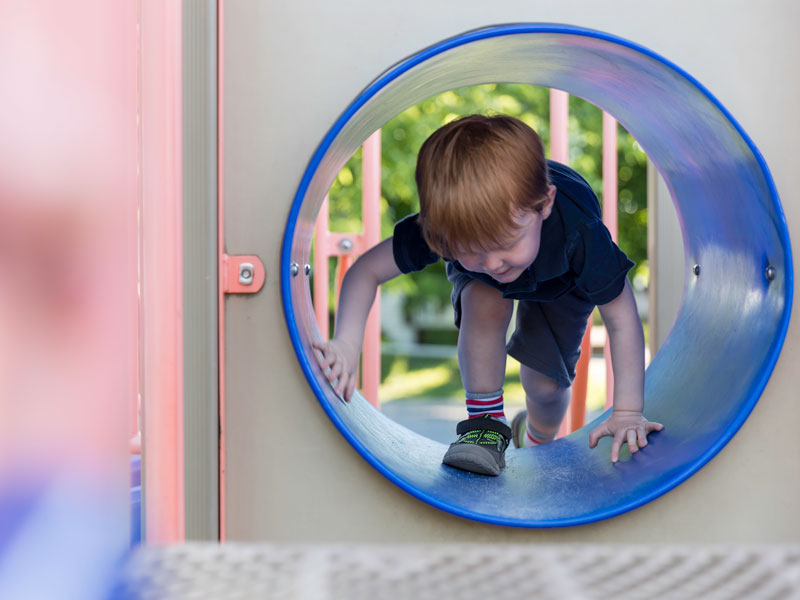The isolation of the coronavirus pandemic might be stunting the social growth of young children, experts say.
Since schools closed across the United States to stem the spread of COVID-19, kids have been deprived of experiences that are essential to their emotional development — playing at recess, sharing lunch with classmates and learning together in the classroom.
‘Normal to feel sad’
Dr. Tracie Newmanis a pediatrician at Sanford Health in Fargo, North Dakota, and says it’s normal for children and teens to feel the effects of the pandemic from a behavior standpoint.
“It’s normal to feel sad during this time. They may miss their friends or be disappointed because sports, events, or other activities were canceled,” said Dr. Newman. “We urge parents who are concerned to call their pediatrician for help checking on the teen’s social and emotional health.”
在最近的一次采访中,西雅图儿童研究所儿童健康、行为和发展中心主任迪米特里·克里斯塔基斯博士和学校督学协会执行主任丹·多梅内奇讨论了学校停课和与同龄人相处时间中断对儿童可能产生的影响。
“We didn’t evolve for this kind of interaction with each other,” Dr. Christakis explained. “You can see it in young children. An infant as young as 6 months will attend to another infant. They want to engage with them socially. So, withholding all of that from children is making them pay a price, at least in the short term.”
Related:Easing anxiety as kids head back to school during pandemic
When schools open up, Dr. Christakis and Domenech said teachers and administrators should be prepared for a surge of mental health concerns among their students.
“We’re working for our teachers to be instructed and trained to, if not physically embrace students, emotionally embrace students and let them talk about their experiences,” Domenech said.
Identify signs, help them cope
纽曼博士说,甚至在学校开学之前,家长们就应该想办法帮助孩子们应对夏季的几个月,这很重要。
“Check in often to discuss how they’re feeling and managing. It’s important for parents to set the tone by trying to stay positive, and relaying consistent messages that a brighter future lies ahead. Keep lines of communication open,” said Dr. Newman.
Frequent check-ins allow parents to monitor changes in behavior and identify “signs of mental health struggles,” says Dr. Newman.
“请记住,这些迹象对每个人都不一样。”
Dr. Newman says signs a teen or child may need support include:
- Changes in mood
- Ongoing feelings of irritability, hopelessness, or rage
- Frequent conflicts with friends and family
- Stepping back from personal relationships
- Lack of interest in activities previously enjoyed
- Changes in sleeping patterns, such as a difficulty falling or staying asleep, or sleeping all the time
- Changes in weight or eating patterns, such as never being hungry, or eating all the time
- Problems with memory, thinking, or concentration
- Changes in appearance, such as a lack of basic personal hygiene
- Increase in reckless behaviors, such as using drugs or alcohol
- Thoughts about death or suicide, or talking about it
Tips from Sanford Fit:Coping with the emotions of change
Help is out there
Dr. Newman says any talk of suicide “should be taken seriously.”
“It’s critical to make your home safe. Remove weapons and ammunition from the house, and secure medications in a locked cabinet,” she said.
“Seek help immediately by calling or texting the National Suicide Prevention Lifeline (1-800-273-8255 or text ‘TALK’ to 741741). Call 911 if self-harming actions are happening. If it’s not a crisis situation, please talk with your pediatrician. We have so many resources to help your teen and your family.”
Dr. Christakis says parents who are struggling to support their children during summer should “take full advantage of every opportunity for their children to engage in person with other kids, while still being mindful of their local public health recommendations.”
He adds that depending where you live, there may still be many opportunities for face-to-face interaction.
“There’s a social learning deficit that needs to be closed,” Dr. Christakis said. “Children are going to need more time outdoors with playmates. If (summer camps) are open where you live, and you have the resources, I would try to make that available to your children, and support them through the summer as best you can.”
Read more
- COVID-19 FAQs: How does coronavirus affect kids?
- COVID-19 FAQs: Keeping kids healthy during pandemic
- Top 5 benefits of children playing outside
…
Posted InBehavioral Health,Children's,Coronavirus,Fargo,Parenting,Wellness
